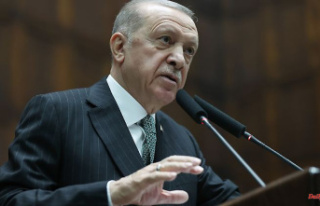Germany should follow the Danish lead: working an extra day to fund the Bundeswehr would be a big sign. The war is also our war.
After some debates, the Danish parliament canceled the "Great Day of Prayer": The nationwide extra work caused by the waiver of the holiday increases the gross national product and thus tax revenue. The money, the equivalent of several hundred million euros, is to be put into the Danish army so that it can adapt to the new times.
Complete. And we like that?
In the past, most things in the Bundeswehr failed because of the lack of money. There is a lot of money now, but the Bundeswehr is initially failing at spending money. So can the debate about canceling public holidays in Germany be ended right away? No, not at all.
The Bundeswehr not only needs the one-time injection of 100 billion euros that the Chancellor announced a year ago. It will take years, if not decades, of comprehensive rearmament, which in reality is a re-armament - back to traditional national defense from the Cold War era. The Basic Law forbids financing this on credit. In this federal government, the SPD, Greens and FDP will not be politically able to raise taxes, cut social budgets or protect the climate. Each party has its veto.
Remains what remained when long-term care insurance was introduced in 1995: cancel a public holiday, as the Danes are doing now. It's a good idea, because it finally combines great practical use with almost even greater symbolic power.
Working one more day makes the new defense and the necessary rearmament a matter for everyone. Everyone who works makes an active, visible and quantifiable contribution, their personal "turning point". That would underline what not everyone wants to admit: the war in Ukraine is also our war. We have a great interest in the right people winning and thus giving Germany the time it needs to repair the army.
Working one more day for the same salary doesn't push anyone to the limit of their strength either: the number of statutory days off varies between years anyway - whether they fall on Saturdays or Sundays or not. Of course, working one more day for the same salary is not intended to make companies richer. They, too, would have to pay off what the extra work earns them in terms of additional profit. That was different in 1995, when the economy was to be compensated for its (equal) contribution to the new long-term care insurance.
The truth is: Talking about the idea of the Danes is not difficult. There are a number of practical problems that need to be resolved before the cancellation of a public holiday really does what it is supposed to do. So it will show whether unusual things can be thought and done in Germany in extraordinary times. Would be nice.












